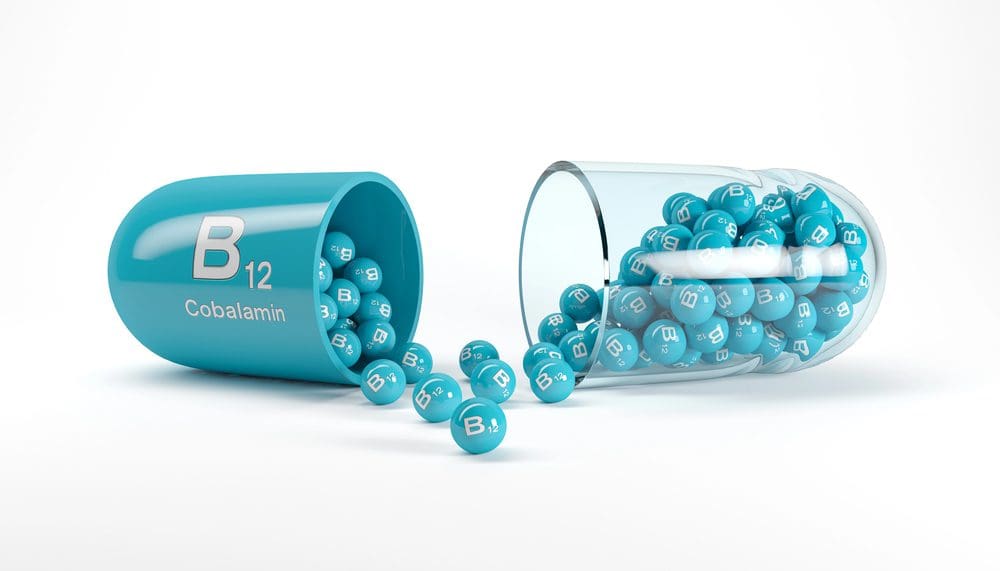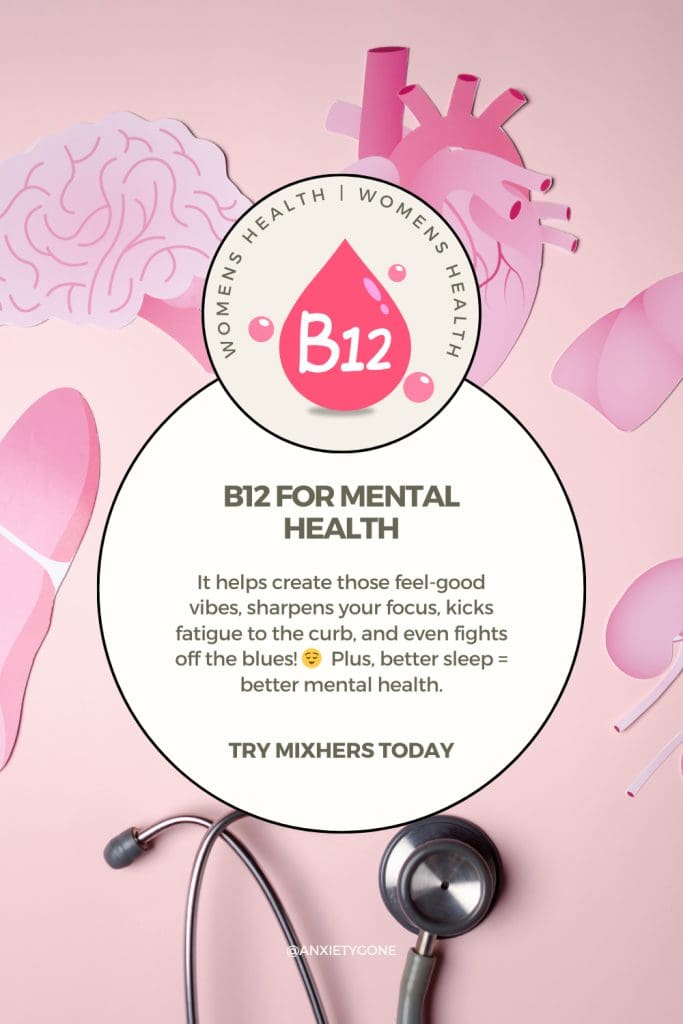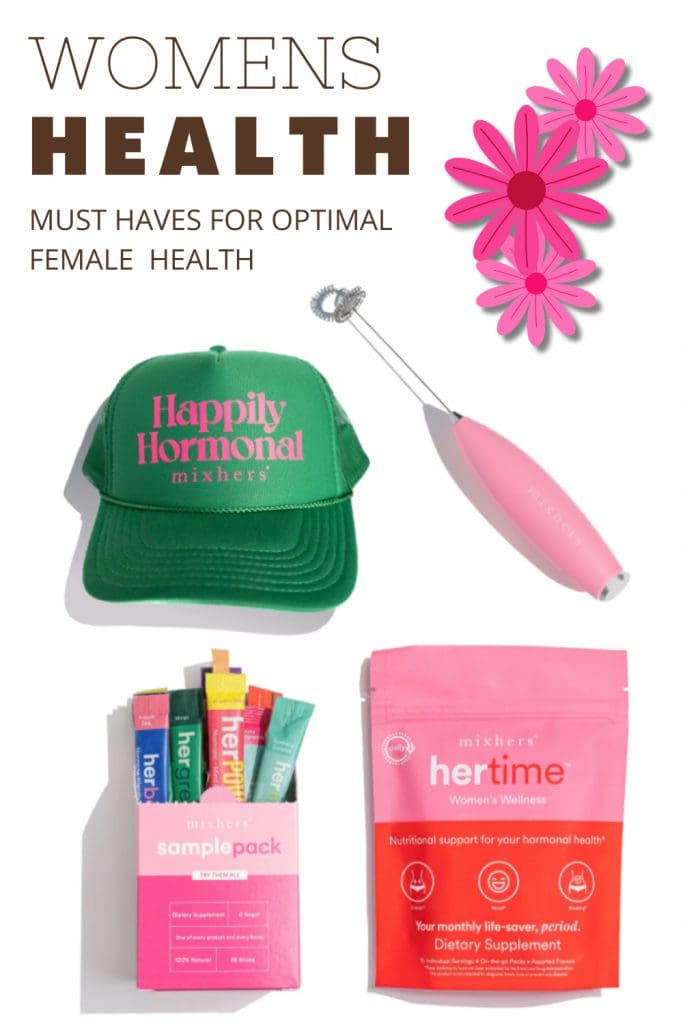Full Disclosure: Clicking on these links could mean a tiny commission for me, at no extra cost to you.
Vitamin B12,also known as cobalamin, is an important nutrient we all need enough of to support various functions that keep us healthy. It plays a critical role in keeping your nerves happy, producing red blood cells and creating DNA, and is primarily found in animal-based foods. Many people, especially women or those following a vegetarian or vegan diet, do not get enough B12 from their daily food intake and must take alternative sources or supplements. While it’s generally considered safe due to its water-soluble nature, you may still be wondering: can you overdose on vitamin B12? This article will explore the risks, symptoms, and recommendations regarding vitamin B12 intake.
Supplements Made For Her
Mixhers offers a full range of all-natural supplements designed for women. Whether you're dealing with PMS, fatigue, mood swings, or looking for extra stress relief, Mixhers has a feel-good solution for your everyday needs.
What Is Vitamin B12?
Vitamin B12 is a water-soluble vitamin that is crucial for various bodily functions. This means that the vitamin dissolves in water and can be easily absorbed by the body. Unlike fat-soluble vitamins (which are stored in the body’s fat tissues), water-soluble vitamins aren’t stored in large amounts. They travel through the bloodstream, and any excess is usually removed through urine. Because of this, it’s important to consume water-soluble vitamins regularly through diet or supplements.
Examples of water-soluble vitamins include the B vitamins (like B12, B6, and folate) and vitamin C. Since your body doesn’t store them, you’re less likely to overdose on these vitamins, but it also means you need a consistent intake to keep your levels balanced.
Key Functions of Vitamin B12
Vitamin B12 plays several key functions in the body. Here are its main roles:
- Red Blood Cell Formation: B12 is crucial for producing healthy red blood cells, which are responsible for carrying oxygen throughout the body. B12 deficiency can lead to anemia, causing fatigue and weakness.
- DNA Synthesis: B12 is essential for DNA and RNA production, which are vital for cell replication and repair. This process is critical for overall growth and bodily maintenance.
- Nervous System Health: B12 helps maintain the health of the myelin sheath, the protective coating around nerves. This is important for proper nerve signaling and overall nervous system function.
- Energy Production: B12 aids in converting carbohydrates into glucose, which the body uses for energy. This helps boost physical and mental energy levels.
- Brain Function and Mental Health: B12 is involved in the production of neurotransmitters, which influence mood, memory, and cognitive function. Adequate levels help reduce the risk of mental health issues like depression and cognitive decline.
- Homocysteine Regulation: B12 helps regulate homocysteine levels, an amino acid that, when elevated, increases the risk of heart disease. By keeping these levels in check, B12 supports heart health.
Sources of Vitamin B12
Vitamin B12 is predominantly found in:
- Animal products: Meat, fish, poultry, eggs, and dairy.
- Fortified foods: Cereals, plant-based milk, and nutritional yeast.
For those who follow a vegan or vegetarian diet, it is essential to consume fortified foods or take supplements to meet daily requirements.
Health Benefits of B12
Vitamin B12 is key for your overall health and well-being, playing a critical role in many bodily functions. Here are some of the general benefits of B12:
- Boosts Energy: B12 is vital for energy production. It helps convert the food you eat into glucose, which your body uses for energy. If you’re feeling fatigued, low B12 levels could be the culprit!
- Supports Brain Health: B12 helps maintain healthy brain cells and nerve function. It’s also involved in the production of neurotransmitters, which are crucial for memory, concentration, and mental clarity.
- Aids Red Blood Cell Formation: B12 plays a key role in the production of red blood cells. Adequate B12 levels help prevent anemia, a condition that can leave you feeling weak and tired due to low red blood cell count.
- Promotes Heart Health: By reducing levels of homocysteine (an amino acid that, when elevated, can contribute to heart disease), B12 helps protect your heart and circulatory system.
- Supports a Healthy Nervous System: B12 is important for the maintenance of the protective coating around nerves (myelin). Without enough B12, nerve function can be impaired, leading to numbness, tingling, or balance issues.
- Boosts Mood and Mental Health: B12 is essential for producing mood-regulating neurotransmitters, which can help combat depression, anxiety, and mood swings. It’s also linked to reduced risk of cognitive decline as you age.
- Promotes Healthy Skin, Hair, and Nails: B12 helps support the production of healthy cells, including those that make up your skin, hair, and nails. A deficiency in B12 can lead to dry skin, brittle hair, and weak nails.
Getting enough B12 through diet (found in meat, fish, eggs, and dairy) or supplements can have a big impact on your energy, mental health, and overall well-being!
Benefits of B12 for Mental Health
Speaking of vitamin B12 for mental health, let’s elaborate on that. Vitamin B12 is super important for your mental health, working behind the scenes to keep your brain and mood in check. Here are some friendly reminders of why B12 is so amazing for your mind:
- Lifts Your Mood: B12 helps create feel-good chemicals like serotonin and dopamine, which are key for keeping anxiety and low moods at bay. If you’ve been feeling down, a little boost in your B12 might be just what you need to feel more balanced and calm.
- Sharpens Your Mind: Whether you’re juggling work, family, or just day-to-day life, B12 can help keep your brain sharp. It’s like fuel for your brain cells, supporting your memory and focus, so you can stay on top of your game.
- Fights Off Fatigue: Feeling drained and mentally foggy? B12 helps your body produce red blood cells, giving your brain the oxygen it needs to keep you energized and focused throughout the day.
- Helps with Depression: Studies show that low levels of B12 can be linked to depression 1. By ensuring you get enough B12, you’re giving your brain the tools it needs to keep your mood steady and happy.
- Improves Sleep: B12 is also important for helping you get better rest by regulating your sleep cycle. And we all know, better sleep equals better mental health!
So, whether you’re enjoying B12-rich foods like eggs, fish, and dairy, or taking a supplement, it’s an easy and natural way to support your mind and feel your best. Take care of yourself—you deserve it!
Can You Overdose on Vitamin B12?
Vitamin B12 is considered one of the safest vitamins, with no established upper limit for its intake. This is largely due to its water-soluble nature, meaning that excess amounts are usually excreted through urine rather than stored in the body. Consequently, overdosing on vitamin B12 through food sources is virtually impossible.
Supplement Concerns
While food sources of vitamin B12 are generally safe, supplementation can raise concerns, particularly in high doses. Common forms of vitamin B12 supplements include:
- Cyanocobalamin: The most common synthetic form.
- Methylcobalamin: A bioactive form that some people prefer.
Potential Risks of Excessive Supplementation
Though overdosing is rare, excessive supplementation can lead to potential side effects, including:
- Mild Diarrhea: Some individuals may experience gastrointestinal discomfort.
- Skin Reactions: Rashes or itching can occur in sensitive individuals.
- Nerve Damage: In extremely high doses, there are anecdotal reports of neurological symptoms, although research is limited.
Symptoms of Vitamin B12 Overdose
As previously mentioned, the risk of overdose is low; however, if someone consumes an exceptionally high dose, they might experience:
- Nausea or Vomiting
- Diarrhea
- Headaches
- Fatigue or Weakness
- Anxiety or Restlessness
If you experience any of these symptoms after taking vitamin B12 supplements, it is advisable to consult a healthcare provider.
Get Started with an Anti-Anxiety Diet Plan
Beyond Body offers personalized wellness plans designed to help you make smarter, dopamine-friendly food choices that support your mental health. Don’t miss out on an exclusive discount of up to 50% off — take the first step toward a healthier, happier you. Claim Your Discount
Recommended Daily Allowance (RDA)
The RDA for vitamin B12 varies based on age, gender, and life stage:
- Adults: 2.4 micrograms (mcg) per day
- Pregnant Women: 2.6 mcg per day
- Breastfeeding Women: 2.8 mcg per day
When to Seek Medical Advice
If you are considering taking vitamin B12 supplements or are concerned about your intake, it’s important to consult with a healthcare professional, especially if you have underlying health conditions or are taking other medications. They can help determine your individual needs and any necessary adjustments to your diet or supplementation.
Conclusion
While vitamin B12 is crucial for health and is generally safe, it’s imperative to always approach supplementation mindfully. Overdosing on vitamin B12 is highly unlikely, but excessive intake can lead to mild side effects in some people. Always consult with a healthcare provider to tailor your vitamin B12 intake to your specific health needs, ensuring you reap the benefits of this vital nutrient without adverse effects.
Additional Resources
Ready to elevate your mental wellness? To help our readers thrive along their mental health journey, Anxiety Gone partners with leading experts in the mental health and wellness field. We may receive commission from the companies listed below at no extra cost to you.
Join The Club
Discover a safe, supportive space for self-care inspo and community connection. Join us today and thrive together!
Talk Therapy
BetterHelp connects you with over 20,000 licensed therapists. Start today with a free online assessment. Get Started
Hims/Hers
Explore personalized mental health care and FDA-approved treatment options—no insurance needed. Get started today
Mental Health Newsletter
Get expert tips delivered weekly. Sign Up for free.
Start Tapping for Relief
Try EFT (Tapping) to reduce stress and anxiety naturally. Get Started
Get Mindfulness Plus
Access 2,000+ expert-created mindfulness practices tailored to you. Explore Now
Try Online Breathwork
Guided breathwork for calming your nervous system. Start Today
Get Mental Health Support
Need immediate help? Find a professional support line near you. Find a Helpline
Infographics for Women’s Health
References:- Smith, A. D., & Refsum, H. (2020). “Vitamin B12 and depression: Mechanisms and evidence from studies.” Nutrition Reviews, 78(6), 435–447. https://doi.org/10.1093/nutrit/nuz108














































